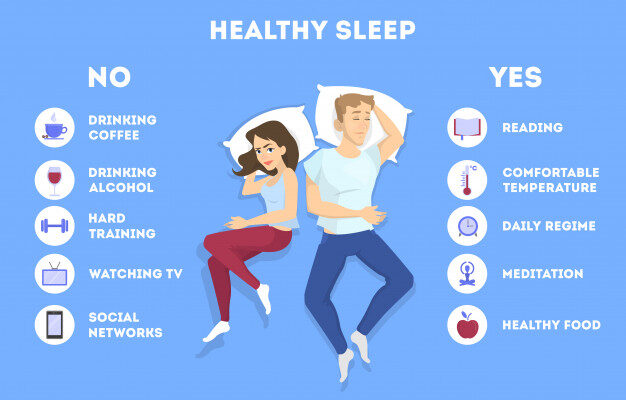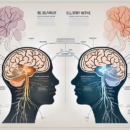PSYCHOLOGY OF MEMORY LOSS

Introduction
Forgetting is an all-too-common thing of daily lives. Sometimes these memory skids are simple and harmless, such as forgetting to call back a phone call. Other times, forgetting can be much more dire and even have serious results, such as an observer forgetting important details about a crime. Memory failures are an almost daily happening. Forgetting is so usual thing that you probably depend on a lot of methods to help you remember important information, such as marking down notes in a daily planner or scheduling important events on your phone’s calendar. As you are panic and searching for your missing car keys, it may show that the information about where you left them is permanently lost from your memory.
Why Time Plays a Key Role in Forgetting
Psychologist Hermann Ebbinghaus was one of the first who studied of forgetting things. In investigations where he used himself as the subject, Ebbinghaus tested his memory using three-letter nonsense syllables. He relied on such nonsense words because using past known words would have involved drawing on his existing knowledge and associations in his memory. To test for innovative thing, Ebbinghaus tested his memory for periods of time ranging from 20 minutes to 31 days. He then published his study impacts in 1885 in Memory: “A Contribution to Experimental Psychology.” His conclusion, plotted in what is known as the Ebbinghaus forgetting curve, revealed a relationship between forgetting and time. In starting, information is often lost very fast after it is learned. Factors such as how the information was learned and how frequently it was practiced play a role in how swiftly these memories are lost. Information stored in long-term memory is surprisingly stable.
How to Measure Forgetting
Sometimes it might seem that information has been skipped, but even a fine cue can help back the memory. Think off the last time you took an exam for school. While you may have initially felt forgetful and unprepared, looking the information presented on the test probably aid cue the retrieval of information you may not have known you even remembered.
- Recall: People who have been asked to remember something, such as a list of words, may be asked to recall the list from memory. By seeing how many items are in your memory, researchers can rule out how much information has been forgotten. This method may include the use of free recall (recalling items without hints) or prompted recall (utilizing hints to flash back memories).
- Recognition: This method involves identifying information that was previously in memory.
Theories About Why We Forget
There are many factors can make thing to forget. Sometimes you may be distracted when you memorize new information, which may mean that you never truly retain the information long more to remember it later.
The Interference Theory
What did you have for dinner Tuesday night of last week do you remember? Is that difficult to recall or not? If someone asks you a question about your last morning, you will find no difficulty in recalling what you had for breakfast the morning before. However, intervening days goes on, the memories of all the other food you have eaten since then start to interfere with your memory of that one specific meal.
Interference theory explains that forgetting the events might be the result of variety of memories intruding one another. The same two or more events are to one another, the more likely interference will occur.It is problematic to remember what happened on an average school day two months ago because so many other days have occurred since then. innovative and recent past events are less likely to suffer from interference.
- Retroactive Interference- happens when latest learned information interferes with old memories.
- Proactive Interference- occurs when previously learned information makes it more problematic to form new memories.
Sleep also plays an essential role in memory people says that learn and sleep it will make memory strong.
The Decay Theory of Forgetting
According to the trace theory of memory, physical and chemical changes in the brain makes in a memory “trace.” Information in short-term memory lasts for some seconds and if it is not practiced, the neuro chemical memory trace quickly fades.According to the trace decay theory of forgetting memory, the events that happen between the development of a memory and the relearning of the memory have no impact on recall.Trace theory proposes that the time length between the memory and recalling that information decide does the information will be retained or forgotten.
The Retrieval Failure Theory
Sometimes the memories are saved, but we just cannot seem to check them. Two of the main reasons for this failure in memory retrieval are related to encoding failures and lack of retrieval hints.A usual reason why we do not remind information is because it never made it into long-term memory in the first place.
Focus Your Attention
Attention plays a major role in memory. In case for information to move from your short-term memory into your long-term memory, you need to actively attend to this information. We should try to learn in a place which should be distraction free. For example, television, music, crowded place, and other distractions.Set in a separate room for a short period of time to be alone.
Avoid Cramming
Studying materials over several sessions gives you the time you need to adequately make information. Research has always shown that students who study regularly on daily basis remember the material far better than those who do all their studying in one marathon session.
Utilize Mnemonic Devices
These devices are a latest technology usually used by students to take help in recall. A mnemonic is good a way to remember information. Use the rhyme, song, or joke to help remember a specific segment of information from memory.
Elaborate and Rehearse.
To recall information, you all to do is to encode what you are studying into long-term memory. One of the most effective encoding techniques is known as elaborate practice.
Visualize Concepts
Many people get advantaged greatly from visualizing the information they study. Give attention to the photographs, charts, and many other graphics in your textbooks. If you do not have visual hints to help, try make your own. Draw charts or pictures in the margins of your notes or use highlighters or pens in various colors to group related ideas in your written study materials.Take drugs for memory loss like donepezil to improve your diet.
- Fruits, vegetables, whole grains, fish, and olive oil help to make the memory good the health of blood vessels, reducing the risk factor for a memory-damaging stroke.
- Fish are high in omega-3 fatty acids, which have been connected to lower levels of beta-amyloid proteins in the blood and improve vascular health.
- Use almonds and walnuts.
- Take proper vitamins and minerals.















